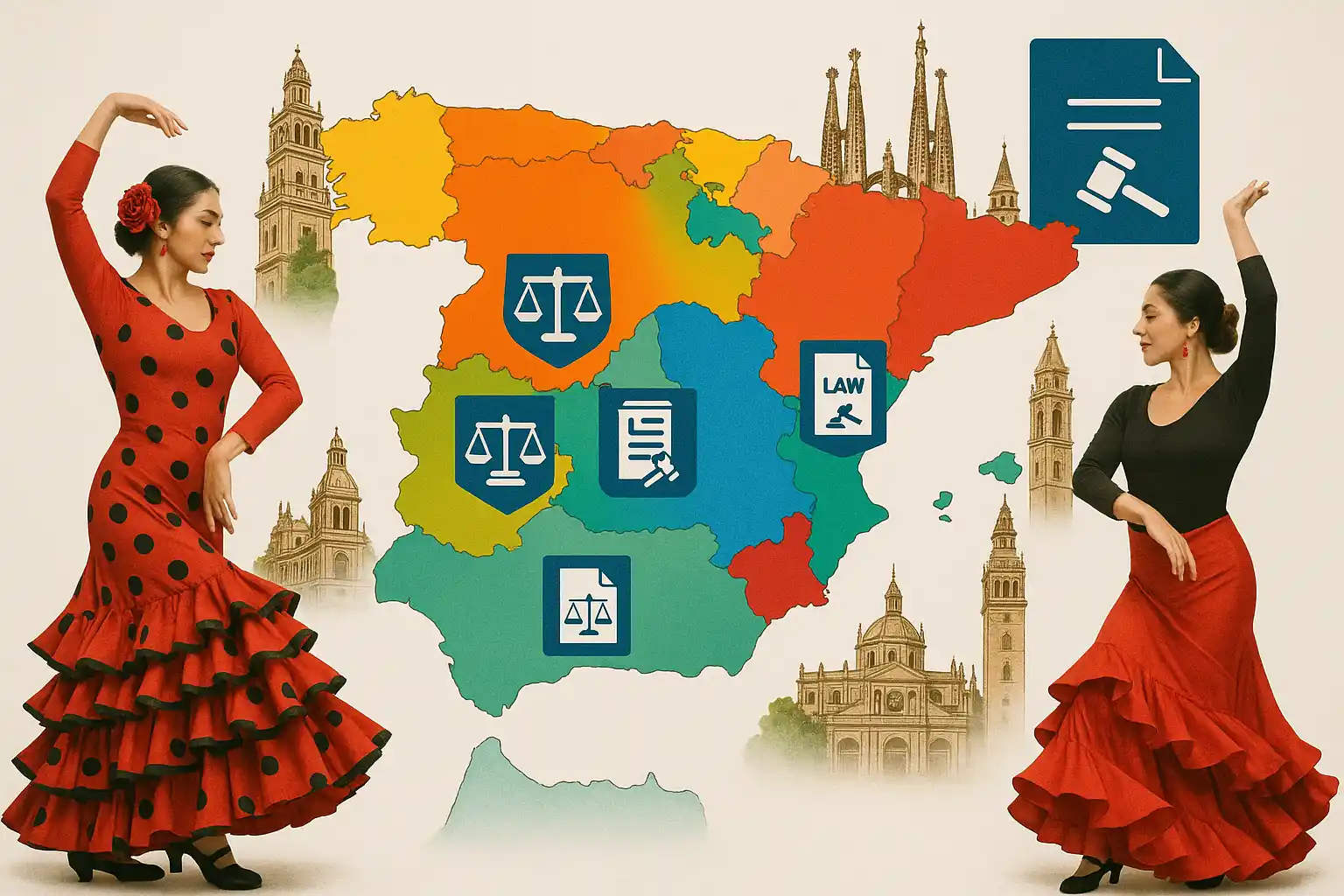Spain, known for its vibrant culture and stunning landscapes, has some strange laws that might surprise visitors. From unusual beach rules to banned names, the country has unique regulations that can be quite unexpected. It’s important for travelers to understand these odd laws in order to navigate Spain smoothly and avoid any unintentional violations. In this article, we’ll explore some of the weirdest laws in Spain that make the Spanish experience even more interesting.
The Quirky Side of Spanish Law
In Spain, the legal system reflects a blend of historical influences and modern developments, resulting in some unique and unconventional regulations that may surprise visitors. Understanding the legal framework can shed light on the origins of these peculiar laws:
1. Historical Roots
Spain’s legal system is a mosaic of diverse traditions that have shaped its current legislation, including:
- Roman law
- Islamic jurisprudence
- Napoleonic legal codes
2. Regional Variations
Spain’s autonomous communities have the power to enact laws specific to their regions, leading to a patchwork of regulations that can vary significantly from one area to another.
3. Law Enforcement Dynamics
The enforcement of these unusual laws often depends on the discretion of local authorities, highlighting the importance of cultural context and community values in interpreting and applying regulations.
In recent years, Spain has also adapted its legal framework to accommodate modern trends such as remote work and retirement abroad. For instance, the introduction of Spain’s Digital Nomad Visa allows US citizens to work remotely while enjoying the rich Spanish culture. Similarly, for those considering a new chapter in their lives, retiring in Spain has become an appealing option with various visa choices and an attractive cost of living.
By delving into the intricacies of Spain’s legal landscape, one can appreciate the nuances that give rise to its quirky and intriguing legal framework.
Weird Laws You Might Encounter in Different Cities
1. Seville: Where Playing Dominoes Can Get You Fined!
Seville, a city rich in culture and tradition, enforces some unexpected street laws that catch both locals and tourists off guard. Among the most peculiar regulations is the prohibition against playing dominoes in certain public spaces. This law aims to preserve public order and prevent disturbances that may arise from gatherings around games.
Key aspects of this regulation include:
- Restricted zones: Public parks, plazas, and pedestrian streets often have explicit bans on playing dominoes or similar board games.
- Noise control: The law addresses concerns about noise levels and potential conflicts among players or with passersby.
- Fines: Violators face monetary penalties which can vary but typically start around €150. Repeat offenses might lead to higher fines or involvement with local authorities.
This unusual restriction reflects a broader approach in Seville to maintain decorum in communal spaces, especially where street activity is dense. The rule extends beyond dominoes to other similar casual games that may attract crowds or create disturbances.
Implications for visitors and residents:
- Tourists accustomed to relaxing with a quick game of dominoes outdoors should seek designated areas or private venues.
- Locals often abide by these rules to avoid unnecessary fines and maintain neighborhood harmony.
- Law enforcement actively monitors popular public spots during peak hours to enforce these laws.
While cities like Madrid and Barcelona offer more leniency regarding street games, awareness of specific municipal regulations is crucial. Understanding these weird Spain laws helps prevent unexpected fines and contributes to respectful engagement with local customs.
The unique regulations in Seville highlight how Spanish cities balance tradition with modern urban management, emphasizing the importance of respecting local street laws when navigating public spaces.
2. Coastal Areas: Strange Beach Rules You Need to Know About
Spain’s coastal regions, including popular destinations like Barcelona and other seaside towns, enforce a set of beach rules that might appear unusual to visitors accustomed to more relaxed beach cultures. These laws aim to preserve public order and ensure fair use of the beach environment.
Key regulations include:
- No saving spaces on the sand: Leaving towels, umbrellas, or personal belongings unattended for extended periods to ‘reserve’ spots is prohibited. Local authorities view this as unfair to other beachgoers. Violators risk fines that can vary depending on the municipality.
- Restrictions on certain activities: In many coastal areas, loud music, barbecuing directly on the sand, or excessive alcohol consumption is banned. These rules are enforced strictly during peak tourist seasons.
- Dress codes and nudity: While some beaches allow nudism, others have explicit prohibitions. Visitors should check signage carefully to avoid penalties.
- Animal regulations: Pets may be banned from specific beaches or allowed only during certain hours. Feeding stray animals is often forbidden under local street laws.
These strange laws in Spain’s coastal areas highlight the country’s effort to maintain harmony between residents and tourists alike. Understanding these regulations helps travelers enjoy Spain’s beaches responsibly without risking fines or confrontations. Such peculiarities add another layer of complexity alongside city-specific laws like those in Madrid, Seville, or Barcelona involving public conduct such as playing dominoes in public spaces.
3. Forbidden Names and Dress Codes: What’s Not Allowed in Spain?
Weird laws in Spain: Spain has some unusual laws that vary from city to city. Let’s take a look at some of these strange regulations in places like Madrid, Barcelona, and Seville.
Banned Names in Spain
In Spain, certain names are prohibited due to their historical significance and negative associations. Here are a couple of examples:
- “Lobo” (Wolf) – This name is banned because it has connotations of danger or aggression.
- “Cain” – This name is forbidden due to its biblical association with murder.
The Spanish authorities have implemented these restrictions with the intention of safeguarding individuals from potential harm or humiliation caused by their names.
Dress Code Regulations in Spain
When it comes to dressing appropriately in Spain, there are specific guidelines to follow:
- Madrid and Barcelona: In these cities, casual wear is generally accepted. However, it’s important to note that revealing clothing or beach attire should only be worn in designated areas such as beaches.
- Street Laws: Some neighborhoods may have specific regulations regarding swimwear or going shirtless outside of beach locations. It’s advisable to respect these rules to avoid any fines or legal issues.
By being aware of these dress code regulations, visitors can show respect for local customs and avoid any unintentional conflicts during their time in Spain.
4. Odd Prohibitions Related to Animals and Activities You Didn’t Expect!
Spain’s cities such as Madrid, Barcelona, and Seville enforce some unusual regulations that might surprise visitors, especially regarding animals in public spaces and certain everyday activities.
1. Feeding Street Animals
Many municipalities strictly prohibit feeding stray cats, dogs, or birds. This law aims to control animal populations and prevent health hazards. Violators can face fines under local ordinances designed to maintain urban cleanliness and protect public health.
2. Driving Shirtless
It may seem harmless to drive without a shirt on a hot day, but in several Spanish cities, this is actually forbidden. Authorities consider it a distraction or an unsafe practice that could lead to accidents. Drivers caught without proper attire risk receiving fines.
3. Pets on Beaches
While Spain is famous for its beautiful beaches, many restrict bringing pets onto the sand during peak seasons. These rules protect other beachgoers and preserve cleanliness. Specific beaches may allow dogs only during off-season months or in designated areas.
4. Other Activity Restrictions
Certain public behaviors—like playing dominoes in specific squares of Seville—are regulated with fines to prevent disturbances or overcrowding. These laws reflect local customs and priorities for public order.
These examples illustrate how weird laws Spain enforces differ across regions, emphasizing the importance of understanding local rules when traveling through the country’s diverse urban environments.
5. The King’s Privilege: Exemptions You Won’t Believe Exist!
Certain individuals in Spain, notably King Felipe VI, benefit from legal exemptions that shape the enforcement of street laws and other regulations. These privileges mean that actions considered violations under weird laws Spain enforce in cities like Madrid, Barcelona, or Seville may not apply to the monarch. For example:
- Immunity from fines related to minor infractions in public spaces
- Exemptions from standard administrative procedures
- Special considerations in matters of security and public order
Such exemptions highlight a unique intersection between traditional authority and modern law enforcement, distinguishing the king’s status in Spanish legal practice. This creates an intriguing contrast when compared with everyday rules—such as those regarding playing dominoes or beach etiquette—that govern ordinary citizens.
Traveling Smart: Tips for Navigating Spain’s Weird Laws
- Embrace the Quirks: Understand and appreciate the unique laws in Spain as part of the cultural experience.
- Research Before You Go: Familiarize yourself with local regulations, especially those that may seem unusual to avoid any surprises.
- Respect Local Customs: Be respectful of local traditions and behaviors to avoid unintentional violations.
- Seek Legal Advice if Unsure: If you have any doubts about specific laws or regulations, consider consulting legal advice to ensure compliance.
- Stay Informed: Keep up-to-date with any changes in laws or regulations that may affect your travels in Spain.
- Be a Responsible Traveler: While enjoying your trip, remember to be a responsible visitor by following the rules and respecting the local environment.














